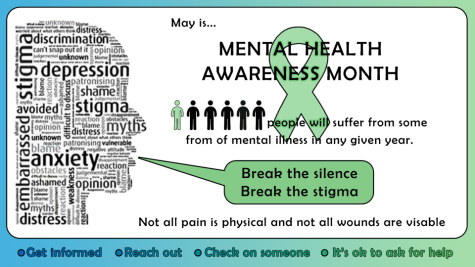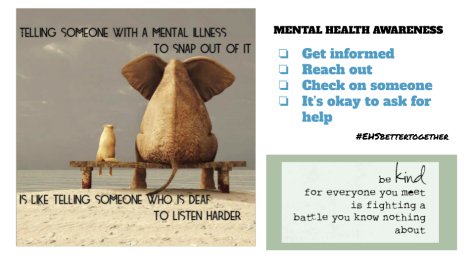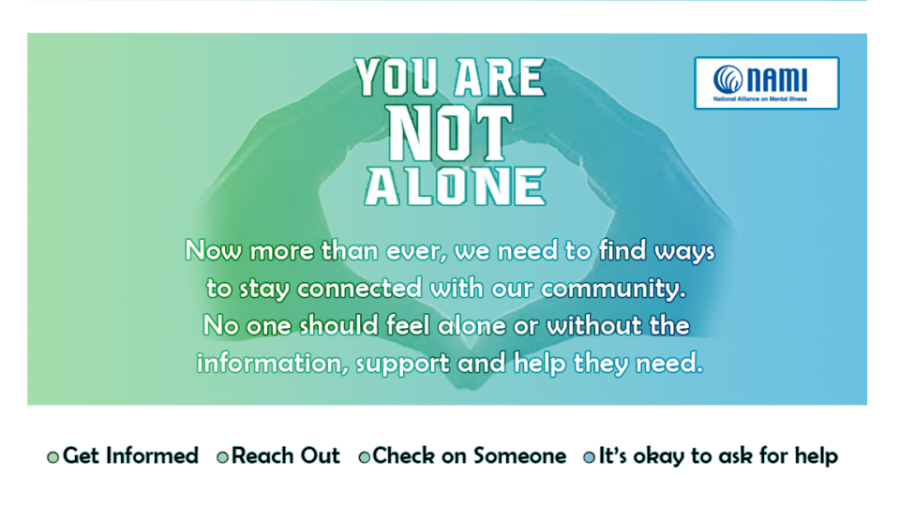Overlooked
Inside the Mental Health of Teachers
May 4, 2022

The first week of May is national teacher appreciation week. The month of May is also mental health awareness month. There is a lot of talk about students’ mental health these days, but what about our teachers? Walking the halls, it is not uncommon to hear kids complaining about teachers or classes. “My homework is still missing even though it was only a day late”, or, “my makeup test still isn’t graded”, or, one of the most common, “my teacher won’t bring up my grade.” At some point, most kids have probably made one or more of these comments in their lives. But at some point, students have to realize that teachers are human too and have lives outside of school.
In addition to their classroom duties, quite a few teachers take on other roles at the school such as coaches or club advisors. Overhearing students complaining about grades and another student making the point of “Oh yeah, well that teacher is a coach too,” and with the response of something along the lines of, “Well they chose to do that, they shouldn’t just stop being a good teacher because of it,” can cause one to pause and reflect on what teachers go through every day. In order to have sports, dances, or other fun activities, mo re often than not requires teachers to sacrifice more time from their personal lives, and kids still choose to complain, often not thinking about the lives teachers lead outside of the everyday responsibilities of teaching and grading.
re often than not requires teachers to sacrifice more time from their personal lives, and kids still choose to complain, often not thinking about the lives teachers lead outside of the everyday responsibilities of teaching and grading.
A few teachers at Ephrata High School were kind enough to share their feelings on mental health and how it has affected them personally. When asked if they felt teachers’ mental health can tend to be overlooked, Mrs. Evenson responded, “Teachers have a big job that encompasses WAY more than just teaching our subject. We’ve always looked out for the well-being of our students. We watch to make sure they’re okay mentally and physically.” She went on to add, “A lot of people think we’re just used to it, but it really starts to add up and weigh us down. As much as we like to think we’re superheroes (lol), we’re human too.”
Another teacher, who preferred to remain anonymous, shared how mental health has affected them. “For myself, and I think for a lot of working moms with small children, trying to work remotely and then in the hybrid model while having my kids with me was certainly challenging, and spending the workday with your attention divided was mentally exhausting…I think that the biggest contributing factor to the burnout is that it seems that there is always more being added to our plates, but it seems that rarely are things taken off.” Teachers with kids of their own also have added responsibilities outside of school, responsibilities that are probably more important than grading a late assignment.
When asked if anything could be done to help with teachers’ mental health, another teacher, who also preferred to stay anonymous, shared some thoughts. “I think most people would have improved mental health if we had more support and thank yous along the way. If I feel appreciated and that I am doing a good job, I am much more likely to feel part of a team and I am not just grinding day today on my own. Good communication from superiors also helps me feel in the loop, supported, and my frustration level is decreased.”

Long story short, teachers’ mental health is just as important as that of their students. School responsibilities can often cut into their personal time. Teachers are always trying to do what is best for their students. They watch and check-in and make sure everything is alright. Some teachers go way out of their way some days to make sure students are in a good place. It’s the least anyone could do to say thanks and be patient. Teachers have a very important job in this world, and it is important that their mental health is taken care of just as much as their students. So if you haven’t already, go say thank you to a teacher and remember, teachers are human too.




























